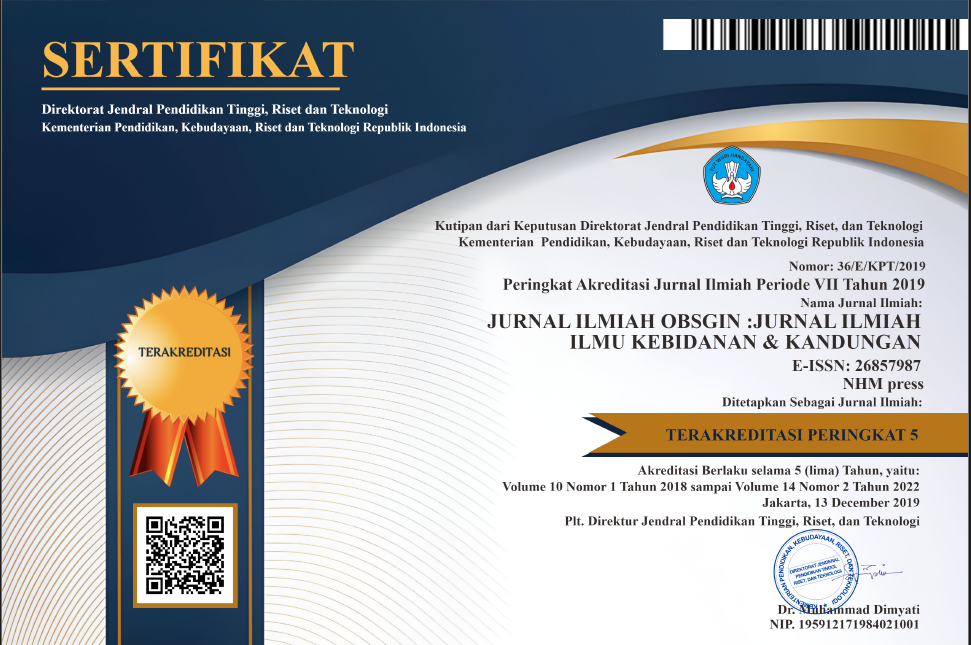FAKTOR-FAKTOR YANG MEMPENGARUHI RENDAHNYA AKSEPTOR KB YANG MENGGUNAKAN KONTRASEPSI IUD DI PUSKESMAS BOBANEIGO KAB. HALMAHERA BARAT
Abstract
Indonesia is a developing country with a very high population increase. Family planning can be defined as an action that helps individuals or married couples to avoid unwanted births, many women find it difficult to make contraceptive choices. Not only because of the limited number of methods available, but also because the method may not be acceptable in relation to national family planning policies, individual health, and female sexuality or the cost of obtaining contraception. The purpose of this study was to determine the factors that influence the low number of family planning acceptors who use IUD contraceptives at Bobaneigo Health Center. This study uses a type of quantitative research with a cross sectional design. The population in this study were all birth control acceptor mothers who did not use the IUD. The sampling technique used Simple Random Sampling. The research tool used was a questionnaire. Data processing techniques include Editing, Coding, Processing, Tabulating. The statistical test used in this study is the Chi-Square Test with SPSS. Based on the results of the study, the following results were obtained: there is a relationship between maternal age (p value = 0.016), maternal education (p value = 0.003), parity (p value = 0.020), maternal employment (p value = 0.003), maternal knowledge (p value = 0.001), husband support (p value = 0.004), maternal attitude (p value = 0.002).











